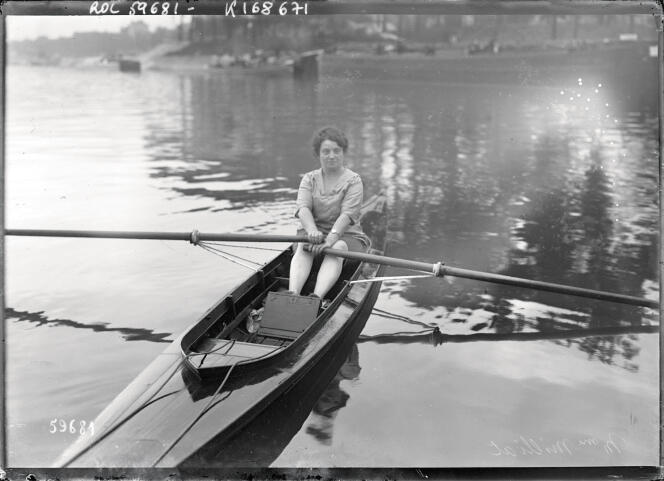


They're the forgotten Olympics. In fact, this Olympiad doesn't even have a number – as if it didn't count! And yet, on August 20, 1922, at the Pershing stadium in the Bois de Vincennes, the first Women's Olympic Games were held. Over 70 international sportswomen competed in a handful of disciplines over the course of a day, in front of 20,000 (half-curious, half-mocking) spectators and a few dubious – or downright sneering – journalists. The reaction didn't matter as those adventurous sportswomen had just made a breakthrough.
The initiative for the event came from a Frenchwoman: Alice Milliat (1884-1957). This great figure has long been neglected in sports historiography. Today, however, her successors are attempting to revive her memory and her work, taking advantage of the fact that the Games are coming to Paris. A biography, Alice Milliat, la Femme Olympique, by Sophie Danger ("Alice Milliat, the Olympic Woman," éditions Les Pérégrines), is due out on April 19.
Another book, Merci Alice ("Thank you Alice"), to be published on May 2, brings together portraits of this trailblazer and 79 female Olympic and Paralympic champions written by 80 women (the book is co-published by the Alice Milliat Foundation and L'Equipe). A documentary film festival, "Sportives en Lumière", will be held in Montreuil (Seine-Saint-Denis), from March 7 to 9. Several symposia will also form part of the activities to honor this extraordinary figure.
From Nantes, Alice Million, who became Milliat after a short-lived marriage to Joseph, who died when she was just 24, was an accomplished rower and swimmer who made a living from translation and shorthand typing. She soon became head of a women's sports club and came up against those who saw it as heresy. As patron of the nascent Fédération Française des Sports Féminins and founder of the International Women's Sports Federation, after World War I she tried to have women's participation in the Games fully accepted, particularly in the premier discipline of athletics.
The International Olympic Committee (IOC) scornfully vetoed the request. It would be unfair to entirely blame Pierre de Coubertin, its president and founder, for a misogynistic attitude that was rooted in society. In an article published in 2019 by Revue d'Histoire, historian Florence Carpentier perfectly expressed Milliat's action in the phallocratic atmosphere of the time and the context of the feminist battles of the day. "Yes, women have the right to sport! Don't push us back with that old cliché that she has to stay at home to mend socks," raged the pioneer, on February 5, 1927, at a conference.
You have 50% of this article left to read. The rest is for subscribers only.
